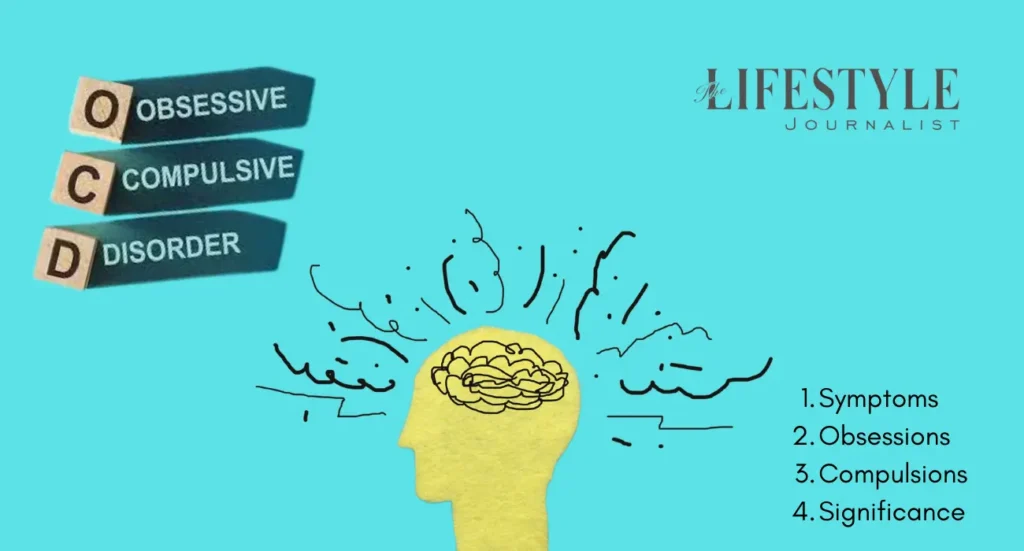Enduring mental health struggles can feel like the world is falling apart, especially if we don’t completely understand them. OCD is one such condition that can be a little too overwhelming to manage and hard to self-recognize in the initial stages. Here are some valuable pointers by a leading homeopath of the region Dr. Vivek Mohan to help shine a light on the subject.
What is OCD?
Obsessive-Compulsive Disorder, abbreviated as OCD, is characterized by irrational thoughts, obsessions, and fears that eventually lead to repetitive and compulsive behaviors. It is a relatively prevalent mental illness with more than one million cases per year in India. To understand it further, obsessions are repeated thoughts, mental images, or urges that cause anxiety; compulsions are the repetitive behaviors one indulges in or has the urge to indulge in as a response to the obsessive thoughts.
Symptoms
The symptoms of OCD vary from person to person and can also change forms with the progression of time over an individual’s life span. Even though mental illness is not restricted to them, here is a list of a few common symptoms experienced by the sufferers.
Obsessions
- Fear of contamination and germs.
- Seeking perfectionism and organized order the majority of the time.
- Unwanted taboo thoughts regarding religion (blasphemy), sex (incest), or harm (self-harm or related to loved ones).
- Aggressive thoughts towards others or self.
Compulsions
- Excessive hand washing, bathing, or cleaning.
- Compulsive counting and repetition of words.
- Repeatedly re-checking on things, for instance, if the gas stove is off or if the door is locked, to name a few.

Interference with Everyday Life
OCD can start with simple symptoms that may seem very regular initially and not cause much trouble. However, repetitive behaviors’ degree and frequency elevate as a person responds to the obsessions in many cases. Individuals suffering from this condition can usually not control their excessive actions and experience an emphatic discomfort on their failure to act on them. The compulsions are repetitive behaviors carried out by people to reduce anxiety. However, over time, they feel the need to indulge in these activities more and more because with each time, the relief time is reduced, and the anxiety intensifies.
Also, read this : Top 5 doctors share their top 5 tips for a healthy lifestyle
Childhood Significance
It has been observed that children growing up in toxic home atmospheres have a higher prevalence of developing mental disorders. Some mental health issues can be characterized genetically and worsen to a greater extent, with growing up in negativity, OCD being one of them. Extensively strict parents unknowingly develop a sense of constant fear among their kids, putting them at a higher risk of disproportionate mental balance and childhood trauma that is likely to release in their adolescence or adulthood in uglier ways.
Managing your OCD
Even though no one particular method is effectively applicable to all cases, there are several ways and techniques available that can help you cope with this mental illness. If your OCD is becoming an obstacle in your everyday life, the best thing to do is consult a doctor. Depending on the degree of your condition, a psychiatrist can prescribe some medications to help manage the situation better. Other methods such as therapy, including cognitive behavioural therapy and talk therapy, can prove to be exceedingly constructive in finding the core reason behind the disorder and taking appropriate actions to deal with it.
Self-Care
Seeking help from medical professionals can go a long way in treating mental illnesses; however, our activities can constitute a world of difference in our health. Adapting positive lifestyle methods such as meditation, exercise, or affirmations can help gain a healthier perspective about life. As mentioned earlier, the home atmosphere plays a significant role in maintaining a peaceful mind. Consequently, it is essential for all parents not to reflect their differences and quarrels on their kids, and even more importantly, prevent passing on their apprehensions and fears to their children.
Breaking the Taboo
Topics like Mental Health and Suicide Prevention are still considered taboo in many parts across the globe, mainly because of their stereotypes. The world needs to understand that having a mental disorder does not make an individual abnormal or insane. Like most physical diseases, mental illnesses can also be cured or managed to live a happy, peaceful and content life. If you or a family member or close friend is going through mental health struggles, it’s time to seek help and not wait entirely for things to fall apart. A little hope, consistent efforts and the courage to take action can give you all needed to make it through this difficult time.
You got this!
Written by – Simmerdeep Kaur

